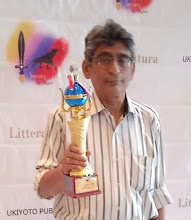PM Modi Announces Booster Doses And Jabs For Kids Even As DCGI Approves Covaxin For 15-18 Age Group!
Prime Minister Narendra Modi has announced, in another unexpected national address late evening yesterday perhaps as a Christmas gift like he did recently on the occasion of Prakash Parv (an annual festival of the Sikhs in Punjab and Haryana) to repeal the Three Farm Laws, booster doses or precautionary doses for the healthcare and frontline workers and all citizens above 60 years of age with comorbidities, to start from the 10th of January 2022, amid the rising Omicron scare in India. In a bid to make the parents confident enough to send their children to the schools the Prime Minister further announced vaccines jabs for children between 15 and 18 years of age to start from January 3, 2022. He also appealed to the people to not panic and follow COVID appropriate behavior strictly while cautioning them against rumors, fear mongering and misinformation. This announcement of the PM has been hailed all over as the most welcome move considering the global Omicron crisis—by the medical fraternity and others including even the opposition political parties. The ‘Booster Dose’ debate has been raging in India since the last few months.
PM Modi has also presented a positive scenario with the logistics of preparation across the country. He hailed India’s vaccination drive started on January 16, 2021 which has now covered 61% of the population with double vaccine jabs and 91% of the population having at least one jab. The Prime Minister informed the nation that at the moment the country has 1.8 million isolation beds, 0.5 million oxygen supported beds, 1,40,000 ICU beds, 90,00 ICU and non-ICU beds specially for the children, more than 3 thousand PSA or Pressure Swing Adsorption oxygen plants, 0.4 million oxygen cylinders and more support to the states is being ensured for buffer stocks of vaccines and facilities for testing. While praising the efforts of the medical doctors, scientists and experts Modi said that India’s pandemic fight has been based on scientific principles, active consultations and methods throughout the period.
There is some uncertainty about which of the two main vaccines being administered in India—Covishield and Covaxin—would be used for the booster doses. It is being speculated, with some medical logic behind it, that the doubly-vaccinated with Covishield would get Covaxin as the booster dose and the doubly-vaccinated with Covaxin would get Covishield jab as the booster dose. The priority of fully vaccinating about 40% of the Indian population who have either got one dose and not vaccinated at all, remains still. To make it happen as soon as possible experts across different fields and state governments have been asking the Government of India to reduce the gap of 12-16 weeks to a month for Covishield jabs. The gap between Covaxin jabs is 28 days, but Bharat Biotech has not been able to manufacture and supply enough doses in comparison to Covishield.
It is also to be noted that Bharat Biotech’s Covaxin for children of the 2-18 age group had been approved on October 12 this year by the Subject Expert Committee (SEC) of the Drug Controller General of India (DCGI) and since then the regulatory body’s final seal has been awaited. It has been reported that, to make very sure of the safety issues, the DCGI had appointed another SEC to go through all aspects and finally approved the vaccine yesterday; but only for the 12-18 age group which is a disappointment. The delay has been more frustrating considering the fact that world’s first DNA-based 3-dose non-injectable vaccine for children above 12 years of age Zydus Cadila’s Zycov-D, was approved by the DCGI as far back as in August this year. Anyway, better late than never, and we hope for the best now. Many experts have commented about children having strong immunity against severe disease after infection; but our concern has always been that children may take the virus home where elders also live.
There is also the issue of the efficacy of the existing vaccines and even the booster doses against Omicron and even the World Health Organization (WHO) is not able to make up its mind yet to suggest or to not suggest the booster doses even as many countries have already gone ahead with that. However, it is more or less accepted that even though the vaccines and the booster doses may not be very effective in preventing COVID-19 and Omicron infections or re-infections the full doses can certainly reduce the severe type of the disease, thus reducing hospitalization and deaths. We further hope that the PM’s steps and the level of preparedness is not used as a justification for going ahead with the assembly elections in 5 states.


Comments
Post a Comment
Hi! Welcome! Please comment what you feel! 😊